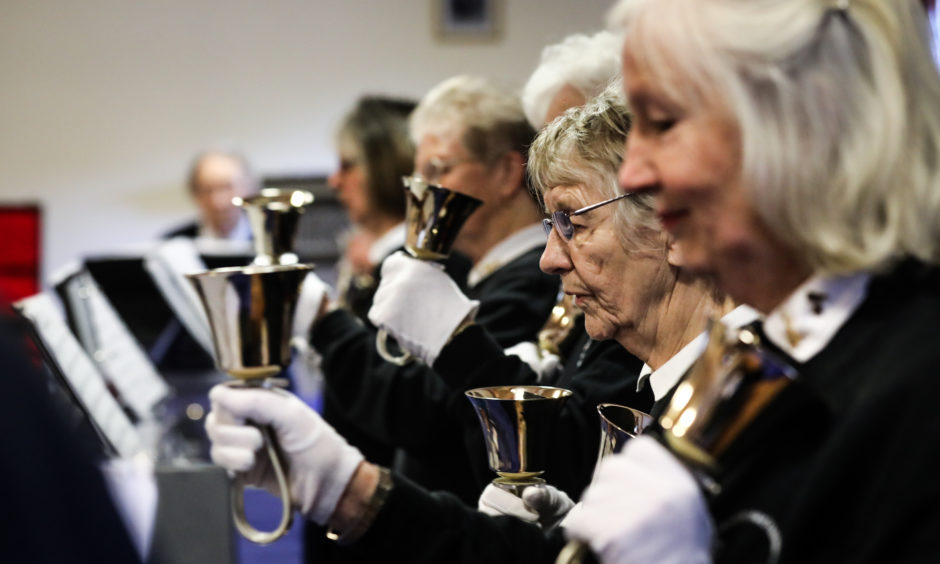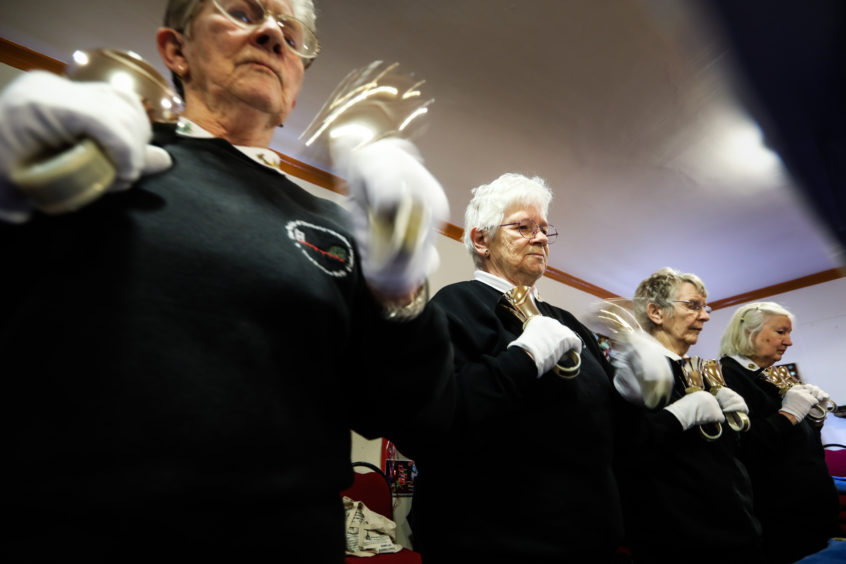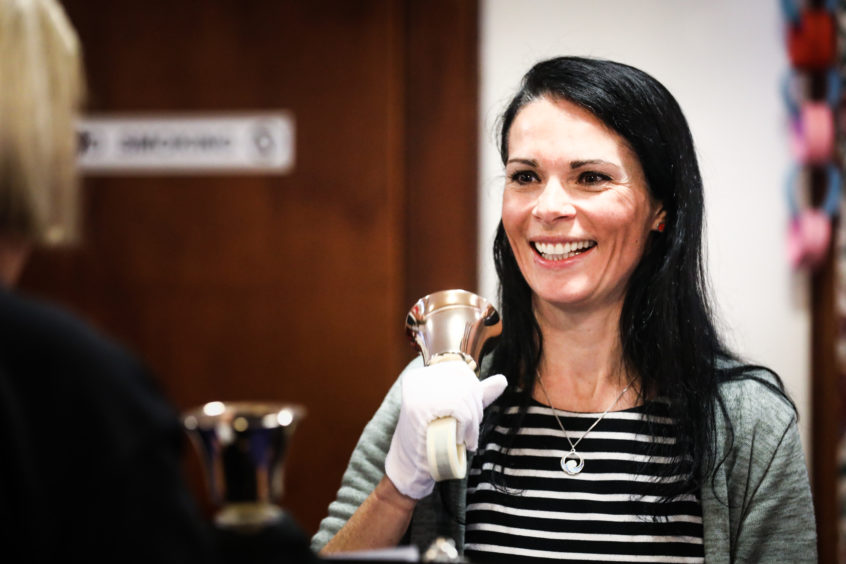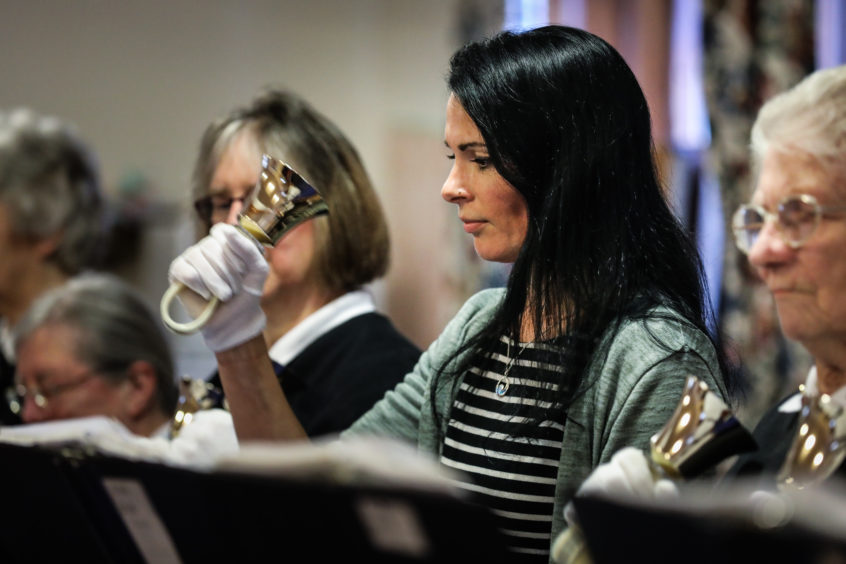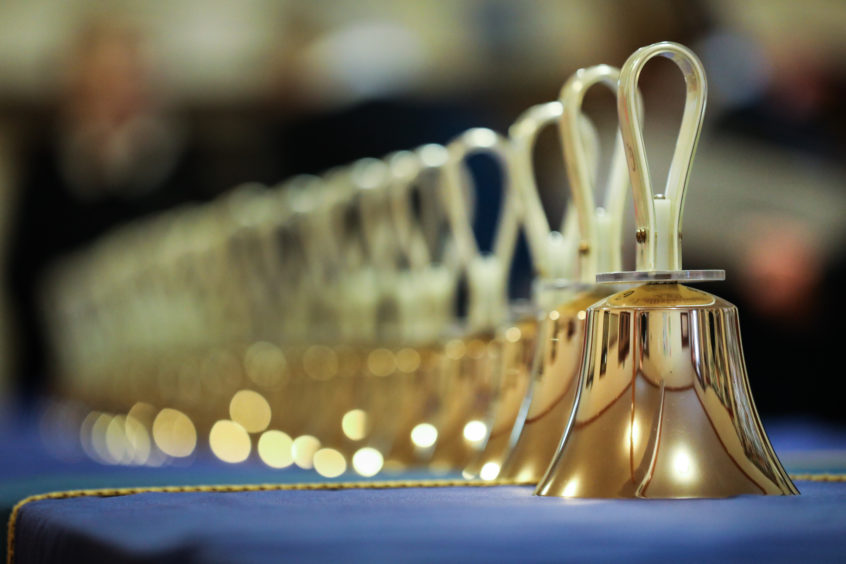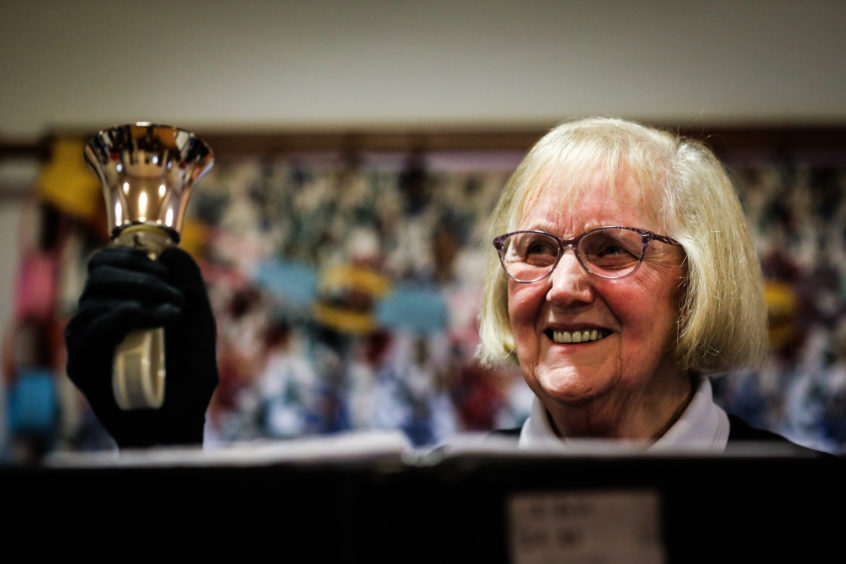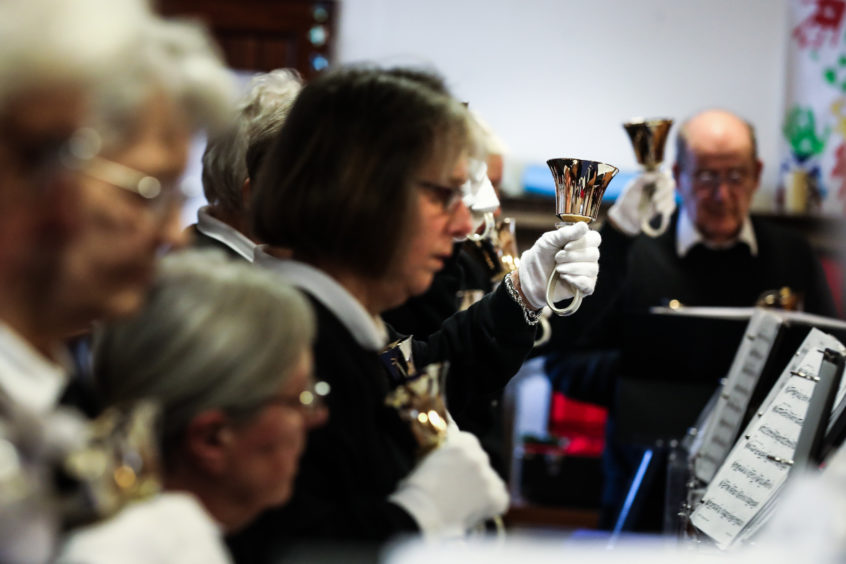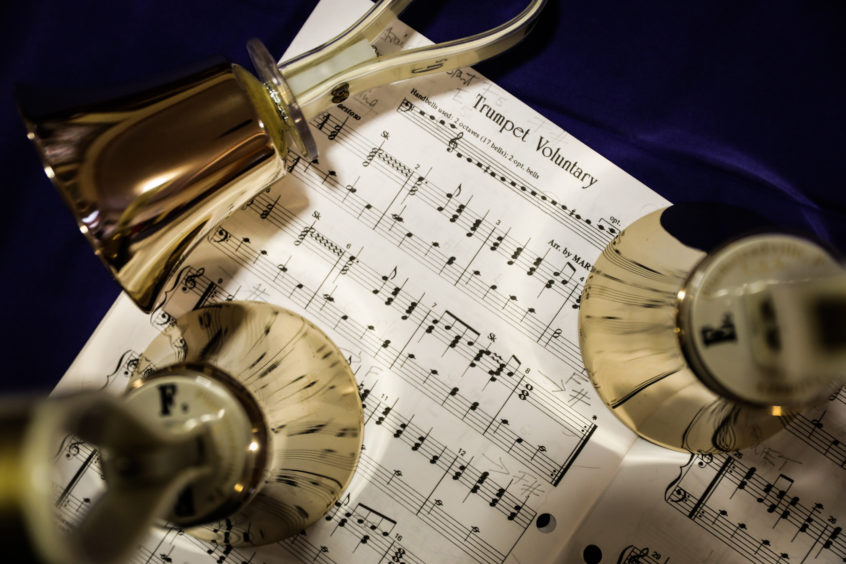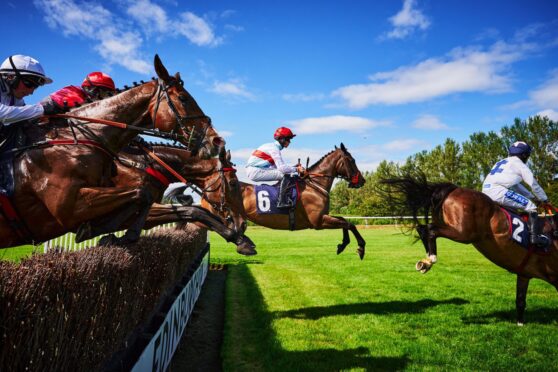There’s an art to playing handbells as lapsed musician Gayle discovers when she has a bash…
A gloriously harmonious sound drifts from Dunkeld’s Duchess Anne Hall into the streets.
Moving closer, I’m able to pick out the tune – Au Clair De La Lune.
It’s being played by women (and one man) on handbells of different sizes and pitches, which tinkle, trill and chime beautifully.
The players in question are members of The Parish of Dunkeld Handbell Ringers group and they’ve invited me to take part in a weekly practise session.
I’m slightly anxious because one of the first questions I’m asked is – can I read music?
The truth is, I can, or perhaps more accurately, I did.
I’m one of those lapsed musicians, who achieved Grade Seven on the piano decades ago and have been in various bands playing drums and (yes) singing (badly).
The trouble is, I was never very good at sight-reading sheet music; it always took me a while to get to grips with it before I would attempt to play it in public. Hence, I kind of feel a wee bit under the spotlight.
I needn’t have worried, though because group leader Margaret Davidson assures me I’ll be just fine.
“You only have to cope with two bells, or one if you wish!” she beams.
Deputy leader Bill Gray adds: “If you can count to six fingers, you’re in! There are lots of people here who’ve never played an instrument in their lives.
“We’ll get you playing within a very short time.”
Without further ado, Margaret hands me a pair of white cotton gloves. Yes, they look the part (and a bit Michael Jacksoney), but handbell musicians wear them for a reason – to protect the bronze alloy from being tarnished by oily skin.
“We’ll start off with a simple tune,” says Margaret, inviting me to stand in the line of players.
“You can have the C6 bell and we’ll play Au Clair De La Lune. Hold the bell as if it’s a glass filled with wine – you don’t want to spill it!
“Once you’ve played the note for the right length of time, damp it against your chest.”
Again, this requires a wee bit of musical knowledge; you need to be able to tell how long a note lasts for – whether it’s a semibreve (whole note), minim (half note), quarter note (crotchet) and so on and so forth.
I have a quick peek at the music, reminding myself of the lines of the treble clef via the mnemonic Every Good Boy Deserves Favour (EGBDF) and FACE for the bass line notes.
I surprise myself by managing to get the whole way through the tune without fluffing up.
Seeing the inane grin spreading across my face – heck, this is uplifting stuff! – Bill hands me a second bell, a B5, and we play Love Me Tender by Elvis.
This is slightly more challenging. I miss a couple of notes and forget to muffle a bell, allowing it to ring out longer than it should, becoming discordant against other notes.
A further attempt and I nail it, even injecting a few stylish flourishes of the wrist.
Job done, I sit back and enjoy the group’s performance of more complex music, including The Hebridean Suite, which includes rousing renditions of Mairi’s Wedding and The Skye Boat Song.
Another tricky one is Trumpet Voluntary, which sees players ramping up their skills to include shakes, trills and “thumb damping”, which creates staccato. And then there’s the jolly My Grandfather’s Clock.
The fun doesn’t stop there. I watch in awe as Margaret demonstrates playing with four bells – wow! At close range, the sweet sound is amazingly powerful and penetrating, joyous and ethereal.
“The secret is to put the bells back in the same places or you get mixed up,” she tells me.
“You need to remember which bell is rung forward, which sideways and with which hand.
“You need strong wrists and good technique. You can also use mallets. They’re a very versatile musical instrument.”
Players come from all over Perthshire and everyone is welcome
Never played music? No sweat. These folk are here to help. They stop short of colour coding the notes, though. “We feel that can make you a bit lazy!” says Margaret.
Joining the handbell ringers is a great opportunity to be part of a music group, says Bill, even if you have no musical background.
“We all find it’s a great stress reliever, as well as fun and a way of meeting new friends,” he adds.
Info
The Parish of Dunkeld Handbell Ringers run “Come and Try” sessions on Thursdays from 2pm to 4pm in the Duchess Anne Hall.
The group was formed in 2002. The former director was Heather McLean who sadly passed away in 2017. She was well-known worldwide as a fantastic solo handbell ringer, known to play 15 and more bells at once.
The group performs and goes to rallies across the country.
They’re at the Scottish Regional Association of the Handbell Ringers of Great Britain Spring Rally in Bankfoot on March 23. www.dunkeldhandbells.uk
